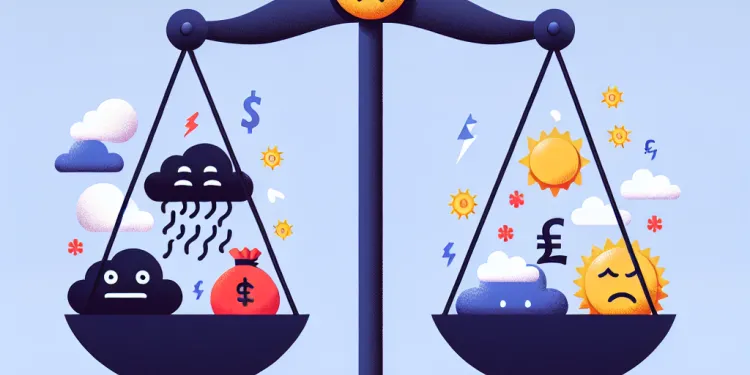
Find Help
More Items From Ergsy search
-
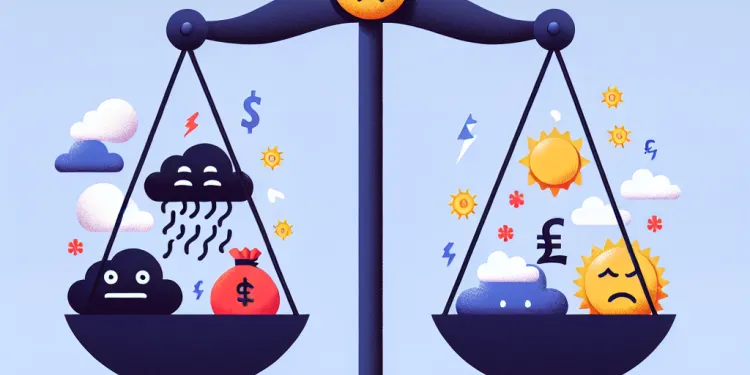
What role do unhealthy dynamics play in causing depression?
Relevance: 100%
-

What causes postnatal depression?
Relevance: 41%
-
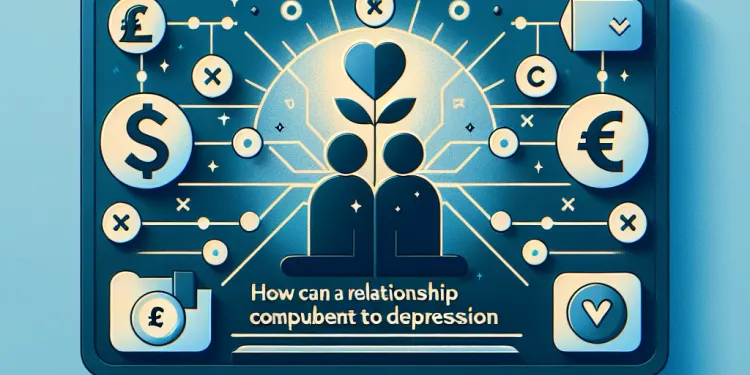
How can a relationship contribute to depression?
Relevance: 40%
-
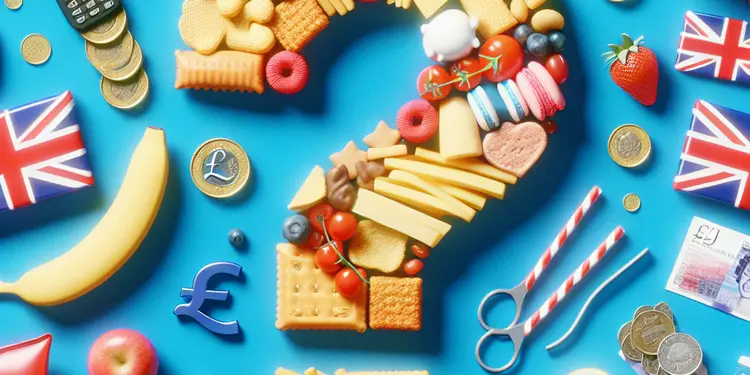
Why is junk food considered unhealthy?
Relevance: 40%
-
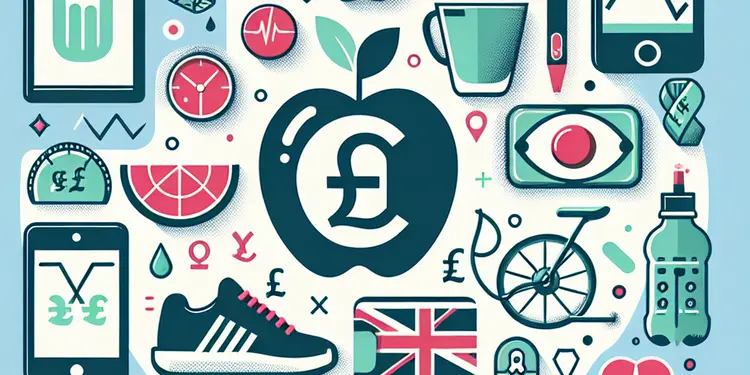
How do I reduce unhealthy fat consumption?
Relevance: 36%
-

Postnatal Depression
Relevance: 36%
-
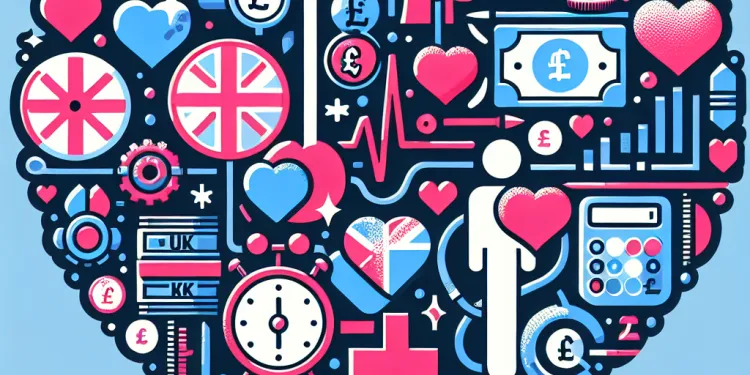
What are the signs that my relationship is making me depressed?
Relevance: 35%
-
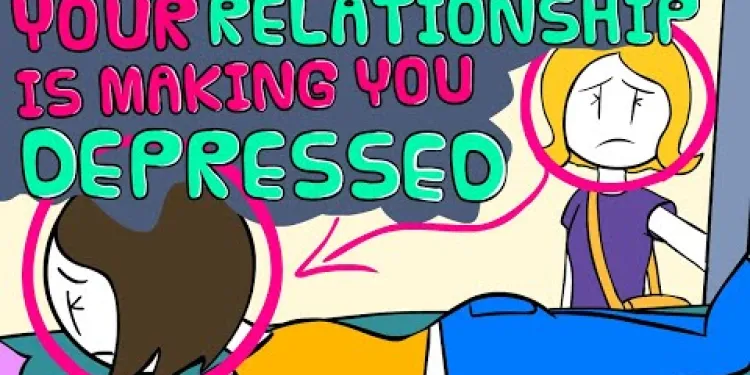
7 Signs Your Relationship is Making You Depressed
Relevance: 34%
-

What is postnatal depression?
Relevance: 31%
-

Can fathers experience postnatal depression?
Relevance: 30%
-

Are there treatments available for postnatal depression?
Relevance: 30%
-
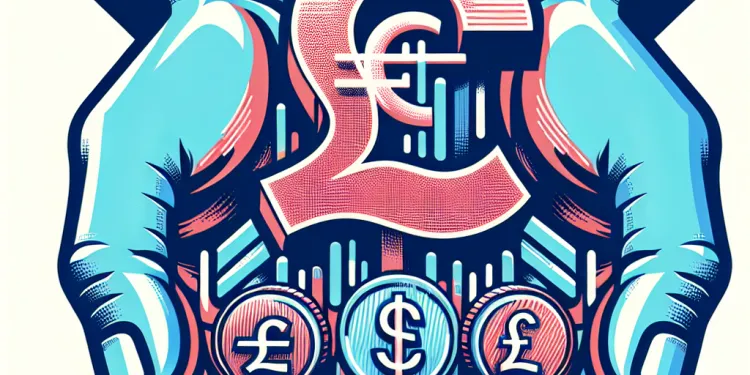
Are there any self-care strategies to cope with relationship-induced depression?
Relevance: 28%
-
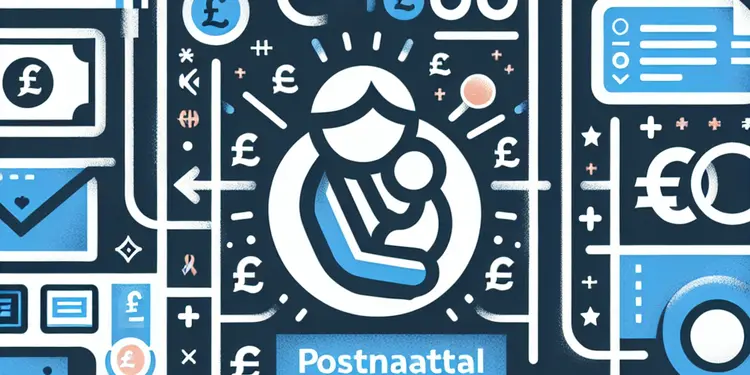
Is postnatal depression preventable?
Relevance: 27%
-

How is postnatal depression diagnosed?
Relevance: 27%
-
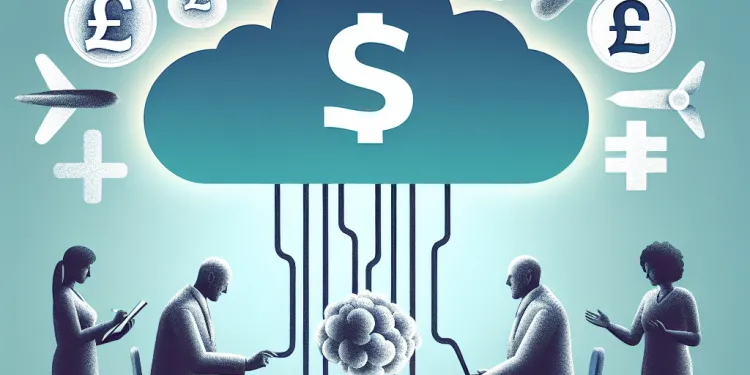
Can physical symptoms be linked to relationship-induced depression?
Relevance: 27%
-

Treating anxiety and depression - www.slam.nhs.uk
Relevance: 27%
-

What are the symptoms of postnatal depression?
Relevance: 27%
-
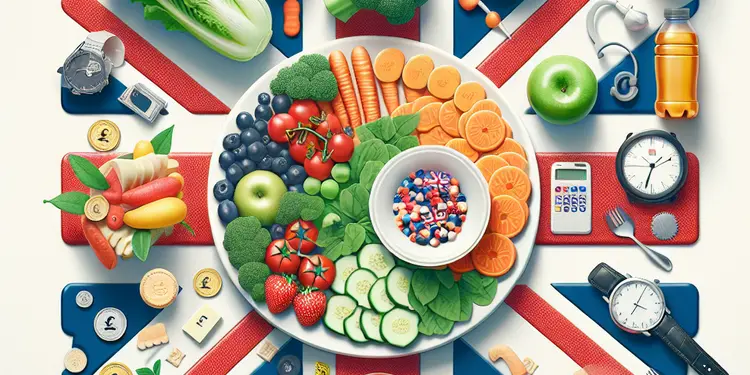
Can a low-fat diet be unhealthy?
Relevance: 27%
-

Is postnatal depression a long-term condition?
Relevance: 26%
-

Can postnatal depression affect subsequent pregnancies?
Relevance: 26%
-

Postnatal Depression - Leanne's Story
Relevance: 26%
-
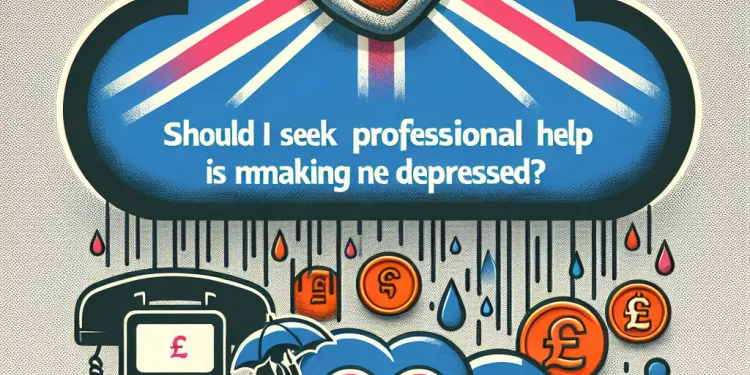
Should I seek professional help if my relationship is making me depressed?
Relevance: 26%
-
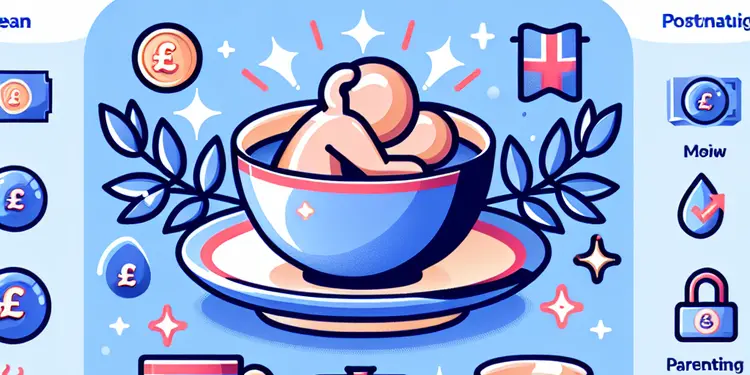
Are there support groups for postnatal depression?
Relevance: 26%
-

Can diet impact postnatal depression?
Relevance: 26%
-
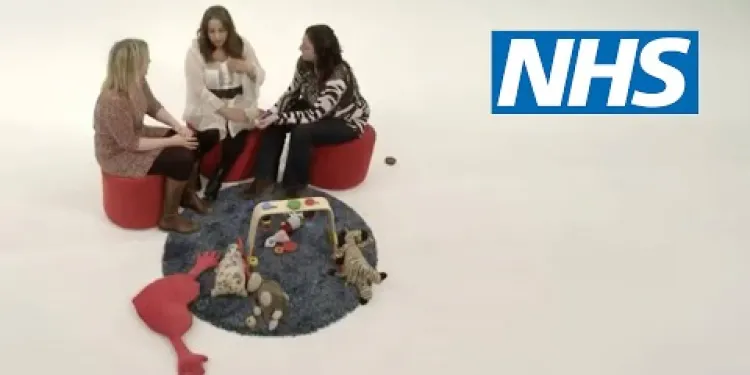
How do I know if I have postnatal depression? | NHS
Relevance: 26%
-
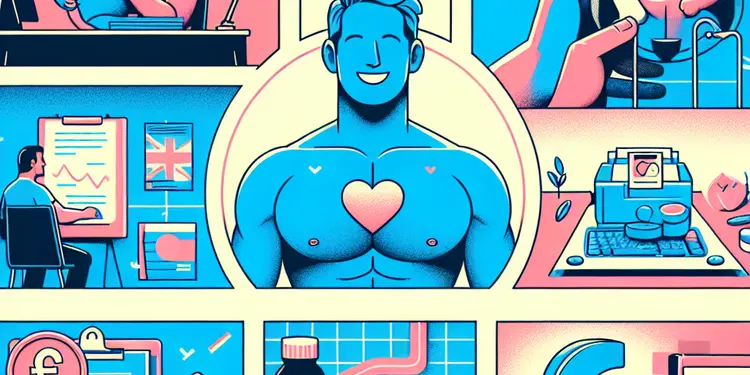
Is medication necessary for treating postnatal depression?
Relevance: 26%
-
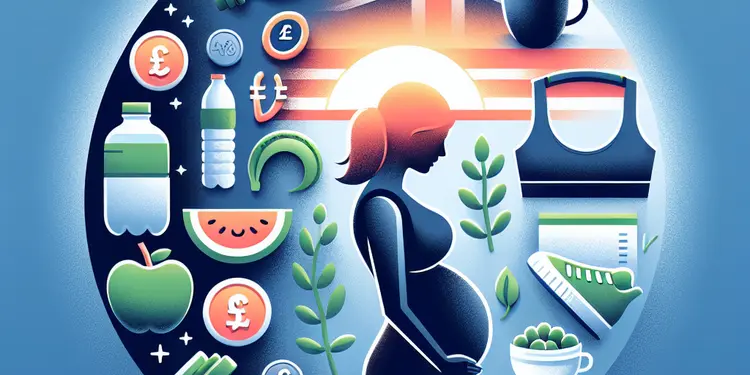
Can lifestyle changes help with postnatal depression?
Relevance: 25%
-
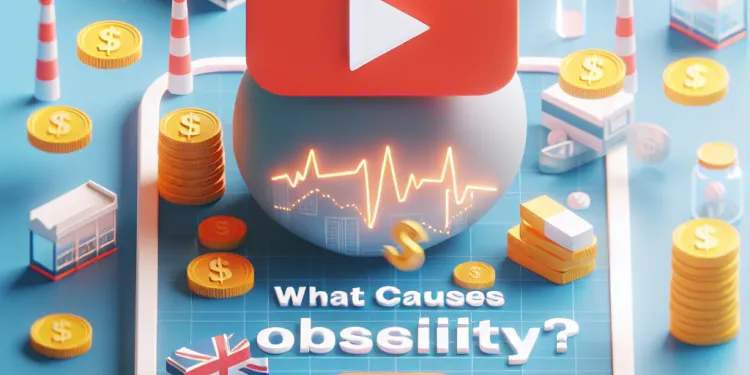
What causes obesity?
Relevance: 25%
-

Clinical depression: Lawrence's story | NHS
Relevance: 25%
-
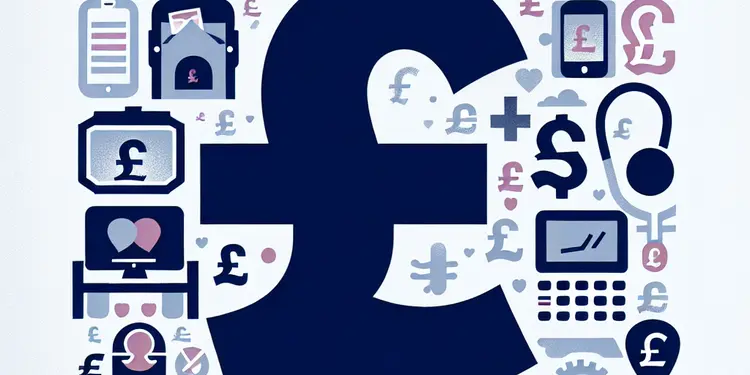
What should I do if I suspect I have postnatal depression?
Relevance: 24%
-
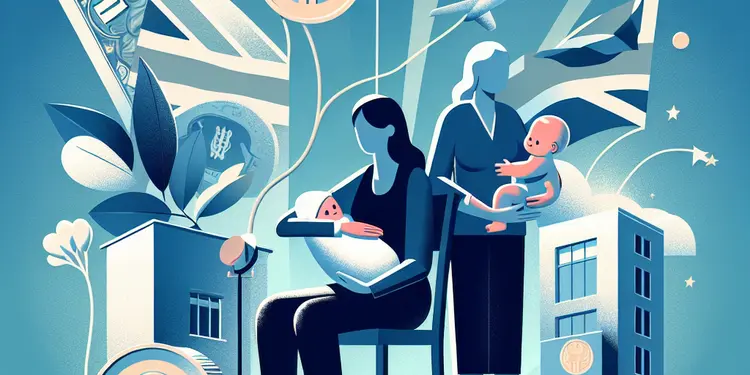
Can postnatal depression recur after treatment?
Relevance: 24%
-

I couldn't celebrate Hibs beating Hearts because I was that depressed
Relevance: 24%
-

What causes Type 2 Diabetes?
Relevance: 24%
-

Should someone with postnatal depression seek professional help?
Relevance: 23%
-
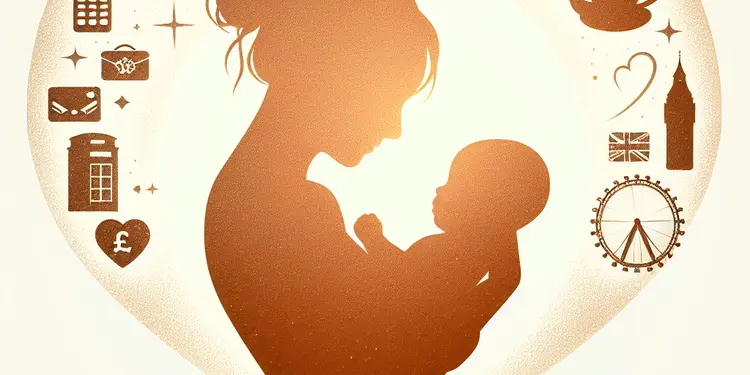
How does postnatal depression affect bonding with the baby?
Relevance: 23%
-
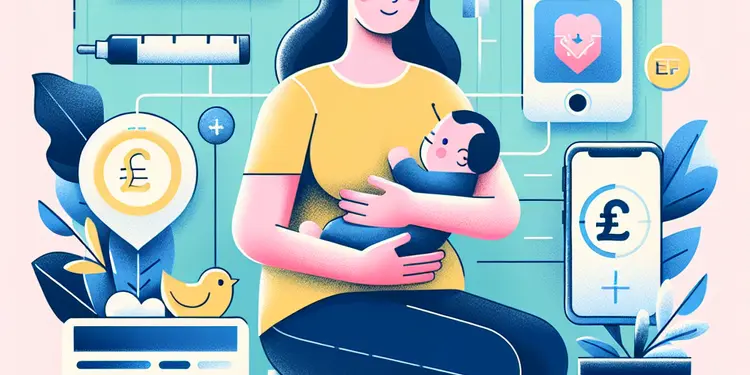
How is postnatal depression different from the 'baby blues'?
Relevance: 23%
-
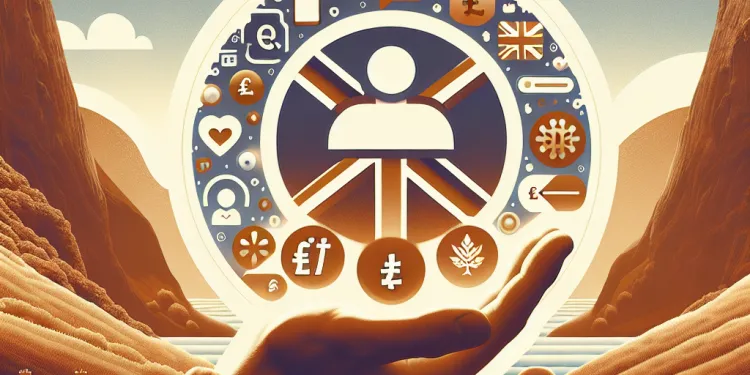
What should I do if my partner dismisses my feelings of depression?
Relevance: 23%
-
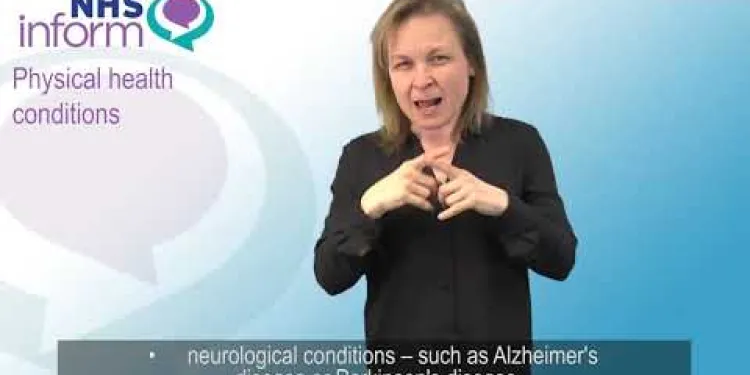
BSL - Causes of insomnia
Relevance: 23%
-
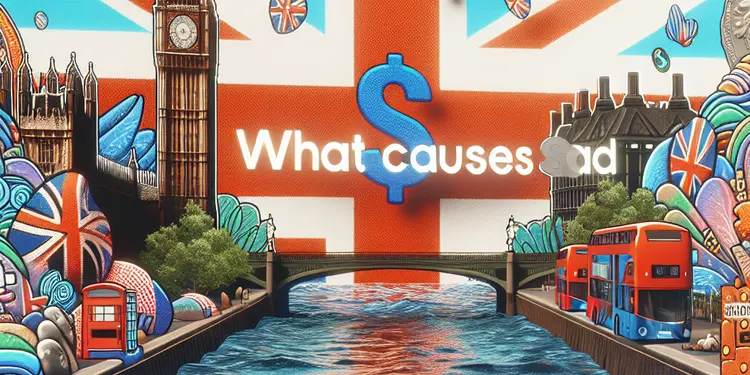
What causes SAD?
Relevance: 23%
-
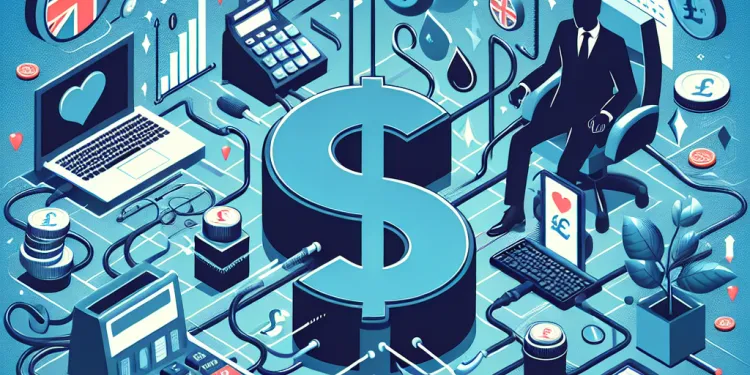
Can stress cause high blood pressure?
Relevance: 22%
Understanding the Role of Unhealthy Dynamics in Depression
Depression is a complex mental health condition that affects a significant portion of the population in the UK. Although there are various factors contributing to the onset of depression, unhealthy dynamics in personal, familial, or occupational relationships often play a substantial role. Recognizing these dynamics can be critical for both prevention and treatment.
Interpersonal Relationships
Interpersonal relationships form the core of human experience. When these relationships are strained or dysfunctional, they can significantly impact mental health. Unhealthy dynamics, such as lack of communication, excessive criticism, or emotional manipulation, can lead to feelings of worthlessness and isolation, which are common symptoms of depression. For example, persistent criticism from a partner may erode an individual's self-esteem, increasing the likelihood of depressive symptoms.
Family Dynamics
Family environments can profoundly affect an individual’s mental health. Families that exhibit unhealthy dynamics, such as power imbalances, lack of support, or high levels of conflict, can create an atmosphere that fosters depression. Children raised in such environments may develop negative coping mechanisms and carry these learned behaviours into adulthood, making them more susceptible to depression. In the UK, where family support is considered a cornerstone of well-being, the absence of a healthy family dynamic can be particularly detrimental.
Workplace Dynamics
The workplace is another environment where unhealthy dynamics can flourish and contribute to depression. Factors such as excessive workload, poor management, lack of job security, and workplace bullying can lead to chronic stress and eventually depression. In the UK, where work culture often emphasises performance and productivity, employees may feel pressured to meet unrealistic expectations, leading to burnout and depression.
Social and Societal Factors
Beyond personal and immediate relationships, broader social and societal factors also play a role in unhealthy dynamics leading to depression. Social isolation, discrimination, and economic challenges can create stress and emotional pain, acting as catalysts for depressive episodes. In the UK, societal pressures, such as the cost of living and social inequality, can exacerbate these dynamics, leaving individuals feeling helpless and unsupported.
Breaking the Cycle
Understanding unhealthy dynamics' role in depression is crucial for developing effective interventions. Therapy and counselling can help individuals recognise and change maladaptive patterns within their relationships. Encouraging open communication, setting healthy boundaries, and fostering supportive environments are essential steps in mitigating the effects of these dynamics. In the UK, access to mental health resources and reducing stigma around mental health issues are critical components of breaking the cycle of depression linked to unhealthy dynamics.
Conclusion
Unhealthy dynamics in relationships and broader social contexts are significant contributors to depression. By addressing these dynamics and promoting mental well-being, individuals can reduce their risk of developing depression or manage its symptoms more effectively. A holistic approach that considers the diverse factors contributing to depression can lead to better mental health outcomes and a healthier society overall.
Understanding Unhealthy Relationships and Feeling Sad
Feeling very sad, also known as depression, is about mental health. It affects many people in the UK. There are many reasons why people get depressed. One big reason is when relationships (with family, friends, or at work) are not healthy. Knowing about these bad relationships can help stop depression or make it better.
Relationships with Other People
Our relationships with others are very important. When these relationships are not good, it can affect our feelings. Bad relationships, like not talking, getting picked on, or emotional games, can make people feel bad about themselves and alone. For example, if a partner keeps saying mean things, it can make someone feel really bad about themselves and sad.
Family Relationships
The way families act affects how we feel. Families that fight a lot or don't care can make people feel sad. Kids who grow up in these bad environments learn bad habits. This can make them more likely to feel sad when they are older. In the UK, people think family support is very important, so not having this support can really hurt.
Work Relationships
Work can also be a place where bad relationships happen. Working too much, having a bad boss, fearing job loss, or bullying can make people stressed and sad. In the UK, there is a lot of focus on working hard and being successful. This can make people feel like they have to do too much, leading to burnout and sadness.
Community and Society
Outside of personal relationships, the larger community and society also matter. Feeling alone, facing discrimination, or having money problems can make people stressed and sad. In the UK, pressures like high living costs and unfairness can make these bad feelings worse, making people feel stuck and alone.
Getting Better
Knowing how bad relationships cause sadness can help us get better. Talking to therapists or counselors can help people see and change these bad habits. Talking openly, setting good boundaries, and creating helpful environments are important steps. In the UK, it's important to have access to mental health help and to be okay talking about mental health.
Conclusion
Bad relationships and bigger social issues play a big role in feeling sad. By fixing these problems and caring for mental health, people can lower their chances of feeling sad or handle sadness better. Looking at all the reasons why people get sad can help everyone feel better and make society healthier.
Frequently Asked Questions
What are unhealthy dynamics?
Unhealthy dynamics refer to patterns of interaction in relationships and environments that contribute to negative mental health outcomes.
How can unhealthy family dynamics lead to depression?
Unhealthy family dynamics, such as constant criticism, lack of support, or emotional abuse, can create a stressful environment that contributes to depression.
What role does toxic work environment play in depression?
A toxic work environment, characterized by excessive stress, bullying, and lack of support, can increase the risk of developing depression.
Can unhealthy friendships contribute to depression?
Yes, friendships that involve manipulation, lack of understanding, or disrespect can negatively impact mental health and lead to depression.
How do power imbalances in relationships affect depression?
Power imbalances can lead to feelings of helplessness and low self-esteem, which can increase the risk of depression.
What are signs of unhealthy dynamics in a relationship?
Signs include constant criticism, controlling behavior, lack of communication, and emotional or physical abuse.
Can unresolved conflicts lead to depression?
Yes, unresolved conflicts can cause ongoing stress and emotional pain, contributing to depression.
How does emotional neglect within a family contribute to depression?
Emotional neglect can lead to feelings of worthlessness and lack of support, which are risk factors for depression.
Do societal pressures contribute to depression through unhealthy dynamics?
Yes, societal pressures such as unrealistic expectations and discrimination can create unhealthy dynamics that increase depression risk.
Can a lack of boundaries contribute to depression?
Lack of boundaries can result in feeling overwhelmed or violated, leading to increased stress and depression.
How does codependency affect depression?
Codependency involves excessive emotional reliance on a partner, leading to low self-esteem and depression.
What role does bullying play in causing depression?
Bullying creates a hostile environment that can lead to low self-esteem and feelings of helplessness, increasing depression risk.
Can financial stress from unhealthy dynamics lead to depression?
Yes, financial stress from poor management or lack of communication in relationships can contribute to depression.
How do communication problems contribute to depression?
Poor communication can lead to misunderstandings and unresolved issues, increasing relationship stress and depression risk.
What impact does social isolation have on depression?
Social isolation can exacerbate feelings of loneliness and worthlessness, which are significant factors in depression.
Can controlling behavior in relationships lead to depression?
Yes, controlling behavior can lead to feelings of helplessness and low self-worth, contributing to depression.
How can cultural expectations lead to depression?
Cultural expectations can create pressure to conform, leading to stress and depression if those expectations are unattainable.
What role does gaslighting play in causing depression?
Gaslighting causes individuals to doubt their reality and self-worth, which can lead to depression.
Can jealousy in relationships contribute to depression?
Persistent jealousy can create mistrust and emotional distress, contributing to depression.
How does lack of emotional support contribute to depression?
Lack of emotional support can leave individuals feeling isolated and undervalued, increasing depression risk.
What are unhealthy dynamics?
Sometimes people do not get along well with each other. This can be because of the way they treat each other.
Unhealthy dynamics means people do not feel happy or safe in the relationship. They might argue a lot or not listen to each other.
To understand better, you can:
- Talk to someone you trust, like a family member or teacher.
- Use websites or books that explain feelings and relationships.
Unhealthy dynamics mean bad ways people act with each other that can make them feel sad or stressed.
How can problems in families make people feel sad?
Sometimes families can be mean or not nice. This can make you feel very sad. If people in your family are always saying bad things, not helping you, or hurting your feelings, it can make the home a stressful place. This might make you feel depressed or really sad.
How does a bad work place make people feel sad?
Being in an unhappy or mean place at work can make people feel very upset. This can make some people feel really sad, which is called depression.
There are ways to feel better:
- Talk to someone you trust about how you feel.
- Take some deep breaths to help calm down.
- Do something fun and relaxing after work.
- Remember that it is okay to ask for help from a doctor or a counselor.
A bad place to work can make you feel very unhappy. It can happen if people are mean, if there is too much work, or if no one helps you. This can lead to feeling really sad or getting depressed.
Can bad friendships make you feel sad?
Some friendships might not be good for you. These bad friendships can sometimes make you feel sad or unhappy.
If you feel sad because of a friendship, talk to someone you trust. This could be a parent, teacher, or friend. They can help you feel better.
It's important to spend time with people who make you feel happy and safe.
Yes, friends who try to control you, don't understand you, or are not nice to you can make you feel bad and sad.
How Do Unequal Power in Relationships Make People Sad?
When one person has more power than someone else, it can make the other person feel weak or not good enough. This can make them feel very sad or down, which is called depression.
What are signs of problems in a relationship?
Here are signs of a problem:
- Always being mean or critical.
- Trying to control what you do.
- Not talking to you.
- Being mean to your feelings or hurting you.
If these signs are happening, talk to someone you trust. You can also use tools like drawing your feelings, telling stories, or asking for help from a grown-up.
Can unsolved fights make people feel very sad?
Yes, when people don't solve fights or problems, it can make them feel upset and hurt. This can make them feel very sad for a long time.
How can feeling unloved at home make someone feel sad?
Sometimes, people in a family might not talk about feelings or show they care. This can make someone feel lonely and like nobody loves them. When this happens, it can make a person feel very sad for a long time.
If you feel sad because of this, it's good to talk to someone you trust. You can also try drawing, writing, or using apps that help with feelings.
When people don't get the love and attention they need, they might feel like they are not important. This can make them feel sad and alone, and could lead to depression.
Tools like talking to someone you trust, drawing, or writing can help. You can also try deep breathing or using apps that help with feelings.
Can pressure from society make people sad and stressed?
Yes, things like feeling pressured by others and being treated unfairly can make people feel sad and upset. This can lead to feeling very down and depressed.
Can not having boundaries cause sadness?
When we do not have rules to protect our feelings, it can make us sad. Setting boundaries is like drawing a line to keep us safe. If we do not have these lines, we might feel stressed or upset.
Here are some tips to help:
- Ask for help from a friend or family member.
- Talk to someone you trust about how you feel.
- Write down what makes you upset and what makes you happy.
- Try saying "no" when you need a break.
- Use pictures or colors to show how you feel.
Talking to a grown-up or a counselor can really help you feel better.
When we don't have clear lines or rules, we can feel really tired and upset. This can make us feel more stressed and sad.
How does needing someone too much make you sad?
When you need someone too much, it is called codependency. It can make you feel sad and upset. Here are some ways it can happen:
- Feeling like you can't be happy without the other person.
- Worrying too much about what they think of you.
- Not doing things you like because of them.
To feel better, you can try:
- Talking to someone you trust about how you feel.
- Doing activities you enjoy on your own.
- Writing down your feelings in a journal.
- Asking for help from a teacher or counselor.
Codependency means you depend too much on someone else. This can make you feel bad about yourself and sad.
How does bullying make people feel sad?
Bullying makes a place feel bad and mean. It can make people feel bad about themselves and feel like they can't do anything to stop it. This can make someone feel really sad.
Can money problems from bad relationships make you feel very sad?
Yes, money problems from not managing well or not talking in relationships can make people feel very sad.
How can talking problems lead to feeling very sad?
Sometimes, when people have trouble talking or sharing their feelings, it can make them feel very sad. Here is why that can happen:
- It is hard to tell others how you feel.
- You might feel alone because others do not understand you.
- Keeping feelings inside can make you feel worse.
Here are some ways to help:
- Try to find a safe person to talk to, like a friend or family member.
- Write down your feelings in a diary or notebook.
- Use pictures or drawings to show how you feel.
When people don’t talk well, they might not understand each other. This can cause problems that don’t get fixed. It can make people feel more stressed and sad.
Talking better can help. Try using pictures, simple words, or writing things down. These can help you understand each other better.
How does being alone affect feeling sad?
Being alone a lot can make people feel more sad or upset.
If you need help, try talking to someone you trust, like a friend or family member. You can also use tools like drawing or writing about your feelings to feel better.
Being alone for too long can make you feel very lonely and like you are not important. This can make you feel very sad.
Can bossy behavior in relationships make people feel very sad?
Yes, when someone tries to control you, it can make you feel powerless and bad about yourself. This can make you feel very sad.
Can cultural ideas make people sad?
Cultural ideas are what people in a group think is normal or okay.
Sometimes, people feel they must follow these ideas. If they can't, they might feel sad.
This feeling can be very strong and lead to depression, which is a deep and long-lasting sadness.
Talking to a friend or using a feelings diary can help.
Sometimes, what people expect from us can feel like a big weight on our shoulders. We might try hard to fit in, but if it feels impossible, it can make us feel very upset or sad.
How does gaslighting make someone feel sad?
Gaslighting is when someone makes you doubt yourself. They might say things that make you question what you remember or feel.
This can make you feel confused and upset. It can also make you feel very sad over time.
Being treated this way is not okay. It is important to talk to someone you trust or a counselor.
Here are some things that can help:
- Talk to a friend or family member about how you feel.
- Write down your feelings in a diary.
- Join a support group to hear from others.
- Stay around people who treat you well.
Gaslighting makes people feel unsure about what is real. It can also make them feel bad about themselves. This can make them very sad.
Can feeling jealous in relationships make you feel very sad?
Feeling jealous for a long time can make people stop trusting each other and feel upset. This can lead to feeling very sad or depressed.
How can not having people to talk to make you feel sad?
When people do not get help with their feelings, they can feel very alone and like they do not matter. This can make them feel very sad.
Here are some things that might help:
- Talk to someone you trust about how you feel.
- Write down your feelings in a journal.
- Spend time with friends or family.
- Try relaxing activities like drawing or listening to music.
Useful Links
This website offers general information and is not a substitute for professional advice.
Always seek guidance from qualified professionals.
If you have any medical concerns or need urgent help, contact a healthcare professional or emergency services immediately.
Some of this content was generated with AI assistance. We’ve done our best to keep it accurate, helpful, and human-friendly.
- Ergsy carfully checks the information in the videos we provide here.
- Videos shown by Youtube after a video has completed, have NOT been reviewed by ERGSY.
- To view, click the arrow in centre of video.
- Most of the videos you find here will have subtitles and/or closed captions available.
- You may need to turn these on, and choose your preferred language.
- Go to the video you'd like to watch.
- If closed captions (CC) are available, settings will be visible on the bottom right of the video player.
- To turn on Captions, click settings .
- To turn off Captions, click settings again.
More Items From Ergsy search
-

What role do unhealthy dynamics play in causing depression?
Relevance: 100%
-

What causes postnatal depression?
Relevance: 41%
-

How can a relationship contribute to depression?
Relevance: 40%
-

Why is junk food considered unhealthy?
Relevance: 40%
-

How do I reduce unhealthy fat consumption?
Relevance: 36%
-

Postnatal Depression
Relevance: 36%
-

What are the signs that my relationship is making me depressed?
Relevance: 35%
-

7 Signs Your Relationship is Making You Depressed
Relevance: 34%
-

What is postnatal depression?
Relevance: 31%
-

Can fathers experience postnatal depression?
Relevance: 30%
-

Are there treatments available for postnatal depression?
Relevance: 30%
-

Are there any self-care strategies to cope with relationship-induced depression?
Relevance: 28%
-

Is postnatal depression preventable?
Relevance: 27%
-

How is postnatal depression diagnosed?
Relevance: 27%
-

Can physical symptoms be linked to relationship-induced depression?
Relevance: 27%
-

Treating anxiety and depression - www.slam.nhs.uk
Relevance: 27%
-

What are the symptoms of postnatal depression?
Relevance: 27%
-

Can a low-fat diet be unhealthy?
Relevance: 27%
-

Is postnatal depression a long-term condition?
Relevance: 26%
-

Can postnatal depression affect subsequent pregnancies?
Relevance: 26%
-

Postnatal Depression - Leanne's Story
Relevance: 26%
-

Should I seek professional help if my relationship is making me depressed?
Relevance: 26%
-

Are there support groups for postnatal depression?
Relevance: 26%
-

Can diet impact postnatal depression?
Relevance: 26%
-

How do I know if I have postnatal depression? | NHS
Relevance: 26%
-

Is medication necessary for treating postnatal depression?
Relevance: 26%
-

Can lifestyle changes help with postnatal depression?
Relevance: 25%
-

What causes obesity?
Relevance: 25%
-

Clinical depression: Lawrence's story | NHS
Relevance: 25%
-

What should I do if I suspect I have postnatal depression?
Relevance: 24%
-

Can postnatal depression recur after treatment?
Relevance: 24%
-

I couldn't celebrate Hibs beating Hearts because I was that depressed
Relevance: 24%
-

What causes Type 2 Diabetes?
Relevance: 24%
-

Should someone with postnatal depression seek professional help?
Relevance: 23%
-

How does postnatal depression affect bonding with the baby?
Relevance: 23%
-

How is postnatal depression different from the 'baby blues'?
Relevance: 23%
-

What should I do if my partner dismisses my feelings of depression?
Relevance: 23%
-

BSL - Causes of insomnia
Relevance: 23%
-

What causes SAD?
Relevance: 23%
-

Can stress cause high blood pressure?
Relevance: 22%


